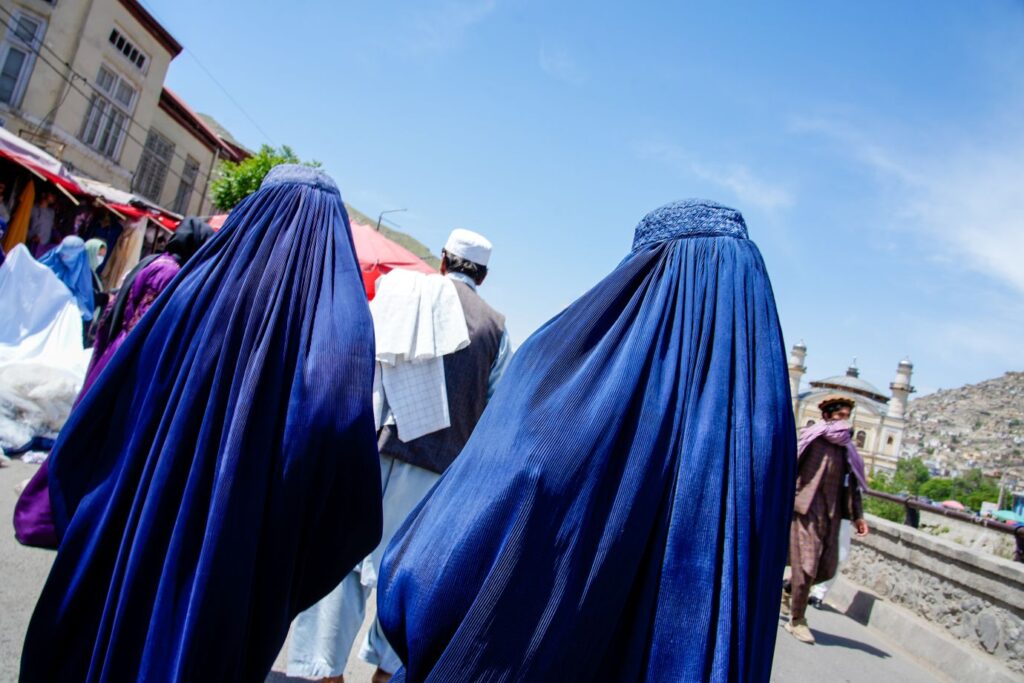In a world striving toward gender equality, the 2024 UN Women Gender Index for Afghanistan is a sobering reminder of how quickly progress can be reversed and how devastating the consequences are when women are systematically excluded from society.
Released in June 2025, this report is the most comprehensive assessment of women’s empowerment in Afghanistan since the Taliban’s return to power in August 2021. Its findings are not just alarming; they are a call to urgent global action.
The report reveals that Afghan women achieve just 17.3 per cent of their potential to access rights and opportunities, compared to a global average of 60.7 per cent. Afghanistan now ranks as having the second-widest gender gap in the world, with a 76 per cent disparity between men and women across key dimensions: health, education, financial inclusion, decision-making, and freedom from violence. These numbers are not just statistics, they represent millions of lives restricted, silenced and stripped of dignity.
Since the Taliban’s takeover, Afghan women have been pushed out of nearly every sphere of public life. The report shows that eight in 10 young Afghan women are excluded from education, employment and training, nearly four times the rate for men. Girls are banned from secondary and higher education. Women are barred from most jobs, restricted from traveling without a male guardian, and even prohibited from visiting parks and public spaces.
This is not cultural conservatism it is what the United Nations has termed “gender apartheid.” The Taliban’s policies are not only violating international human rights norms but also sabotaging Afghanistan’s future. As the report warns, “Afghanistan’s development will continue to spiral downward unless the entire population is empowered to thrive.”
At the International Conference on Girls’ Education in Muslim Communities held in Islamabad in January 2025, Nobel Peace Prize laureate Malala Yousafzai delivered a powerful speech that cut through diplomatic caution. “Simply put, the Taliban do not see women as human beings,” she said. “They cloak their crimes in cultural and religious justification”. Malala urged Muslim leaders not to legitimise the Taliban regime and called on the international community to hold them accountable. Her words are a rallying cry for global solidarity and a reminder that the fight for girls’ education is not just about access to classrooms, but about defending basic human rights.
While the Taliban’s policies are the root of the crisis, international decisions are compounding the harm. In 2025, the Trump administration abruptly dismantled the U.S. Agency for International Development (USAID), slashing over $1.3 billion in global humanitarian aid including $562 million earmarked for Afghanistan. These cuts have had catastrophic consequences.
Among the programs eliminated was the Women’s Scholarship Endowment, a $50 million fund that enabled Afghan women to pursue higher education through the American University of Afghanistan. The fund operated entirely on interest, costing taxpayers nothing. Yet it was terminated overnight, leaving 208 women in limbo many of whom had no other path to education under Taliban rule.
The World Food Programme warned that the cuts “could amount to a death sentence” for millions facing hunger, particularly women and children. The United Nations Population Fund lost a $24 million grant focused on women’s health. Clinics have closed, reproductive health services have vanished and food aid has dried up. Afghan women are left with fewer resources, fewer protections and fewer allies.
This is why the UN Women Gender Index is more than a diagnostic tool it is a lifeline. By adapting the Women’s Empowerment Index and the Global Gender Parity Index to Afghanistan’s unique context, the report provides a roadmap for international countries to respond effectively. It highlights not only the scale of the crisis but also the areas where targeted support can make a difference.
For example, the report underscores the importance of supporting women-led organisations, many of which continue to operate in secret or in exile. In 2024 alone, UN Women partnered with 240 women’s organisations, providing over US$4.5 million in grants to sustain their work. Hence, humanitarian aid can be channelled through women-led organisations to ensure it reaches those most affected.
Despite everything, Afghan women have not given up. Their courage is a testament to the human spirit’s refusal to be broken. The world must match their bravery with solidarity and action.
The 2024 Gender Index is a wake-up call not just for Afghanistan, but for all nations. It reminds us that gender equality is not a permanent achievement, but a continuous struggle. In the current global climate, even hard-fought rights can be stripped back, regardless of a country’s history of progress.
Gender equality must be defended, protected, and fought for everywhere. And in Afghanistan, that fight, it seems, has only just begun – again.
Become a Women’s Agenda Foundation member and support our work! We are 100% independent and women-owned. Every day, we cover the news from a women’s perspective, advocating for women’s safety, economic security, health and opportunities. Foundation memberships are currently just $5 a month.
Bonus: you’ll receive our weekly editor’s wrap of the key stories to know every Saturday.


